Review for School in the Crosshairs
Click here to return to the main page
Introduction
Daiichi High School isn’t alone in educational establishments trying to balance the demands of the curriculum against the extracurricular activities that promote independence of thought, teamwork and creativity, the essential skills for the real world. Currently the balance is tipping towards the academic side of things, which is good for Yuka Mitamura, who is top of her class, although not so great for her friend Kouji Seki, who doesn’t stand out in class, but stands out in the afterschool kendo club. He’s not particularly good at it, but it does mean more to him than simple classroom work.
When Yuka realises that she is psychic, she realises that she can help Seki in his kendo matches. But it turns out that they have far bigger problems, when a girl named Michiru Takamizawa transfers into the class, and it turns out that she is psychic too. She’s got bigger plans than just nudging a kendo match in another direction. First she finagles her way onto the school’s student council, and then she starts pushing the school, students and teachers alike onto a conformist, academic focused path, and she and the minions she recruits deal harshly with any opposition.
The Disc
School in the Crosshairs gets a 1.85:1 widescreen 1080p transfer with DTS-HD MA 5.1 Surround Japanese audio and optional English subtitles. The image is adequate, clear and sharp for the most part, and presented with a filmic layer of grain as you would hope for. But the first thing you’ll probably note is that the blacks tend towards grey, and that doesn’t bode well for dark detail, indeed detail in general. The whole experience feels rather flat and muted. If you’ve seen the Anti-War trilogy, then you’ll know Obayashi’s predilection for montage and collage, how scene composition plays a big part in his films, and that is just as true in School in the Crosshairs, although the way the film flows is a lot more dynamic and off-the cuff. It doesn’t feel quite as stylised and staged as the films in the Anti-war trilogy. The audio is immediately immersive, although I did notice some distortion in the sibilants in the opening theme song vocals, suggestive of a tape source. The subtitles are accurately timed although typos are present. I think ‘student counsel’ is meant to be ‘student council’. Note that the dialogue is accomplished wholly through ADR, just like the Hong Kong movies of the period, but I suspect that different voice actors were used to give the film an anime feel.
Extras
The disc boots to an animated menu, and you’ll find the following extras...
Selected Audio Commentary by Aaron Gerow (27:05)
Chigumi Obayashi and Aaron Gerow in Conversation (27:24)
Translation Notes (9:23)
Trailer (1:55)
I did note that a few of the gags and punchlines in the film felt lost in translation, but the translation notes featurette sorts all of that out, and is the kind of addition that more subtitled media of this sort could use.
Conclusion
The anime comparison really is apt, and not just because of the way the film’s dialogue is completed in ADR. I once saw a joke video where live action footage was voiced with the exaggerated character voices of anime, and it just felt weird. There are a couple of characters in School in the Crosshairs (notably Arikawa, played by Macoto Tezuka of all people) who get really bizarre voices. But the story itself, the high school setting and the social structures within is such a staple of anime, that I wondered if there was a manga that it was adapted from, or an anime version of the story, just like The Girl Who Leapt Through Time. It turns out that there is an anime version of School in the Crosshairs, and yes, I have already reviewed it. Psychic School Wars is the link to click on, if you are interested but I actually prefer School in the Crosshairs.
It certainly looks better than the retina burn inducing hypercolour of Psychic School Wars, and that’s despite it dating from 1981, with some rather quaint visual effects used to realise its other-worldly characters, and their psychic super powers. School in the Crosshairs uses just a thin spread of allegory, barely masking its social commentary about school societies and the burden upon students to excel academically. It’s a perennial issue in Japan, even more true today than it was when this film was originally made.
It’s this expectation of students, that they take responsibility for their education, and effectively police themselves in school, that is such a trope in Japanese school stories (as well as the other side of the coin, the school delinquent movies). It’s supposed to be a balance between formal education and organised extra-curricular activity, a partnership between the student council and class representatives, and the faculty and PTA. But the never-ending desire for academic excellence, high grades, and college entrances, causes tension between the two sides. That is made abundantly manifest and dangerous when you throw psychic students and aliens into the mix, although thankfully, Carrie this isn’t.
School in the Crosshairs has a nice light-hearted feel to it that holds the attention, despite the film feeling like a live-action anime, an approach that usually doesn’t work. Having seen The Anti-War Trilogy, I can certainly recognise this film as a Nobuhiko Obayashi feature, but there is a spontaneity and energy to School in the Crosshairs which I didn’t see in those three films, and that makes the story really come to life. The Blu-ray is competent enough, but is reliant on the quality of the source material, and the image quality is a little lacking, although not overly detrimental to one’s enjoyment.
6½/10
Click here to return to the main page
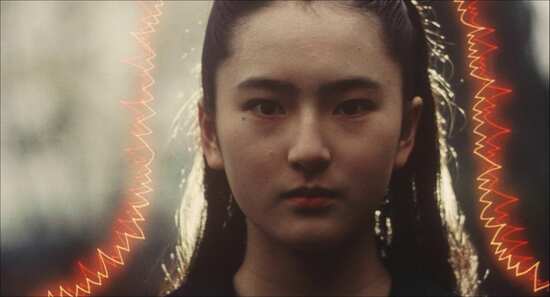
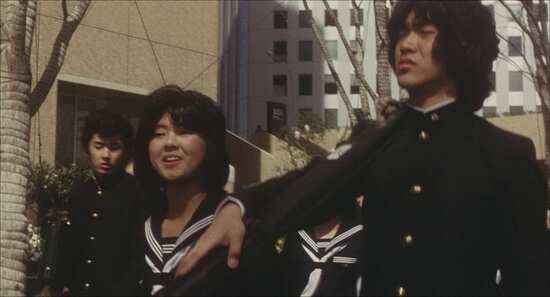
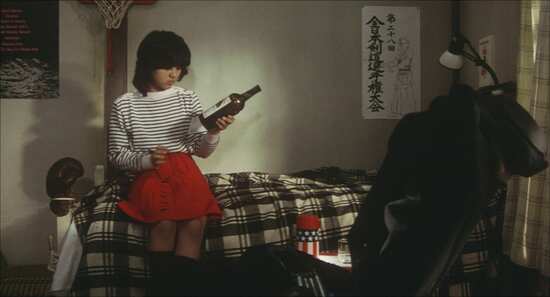
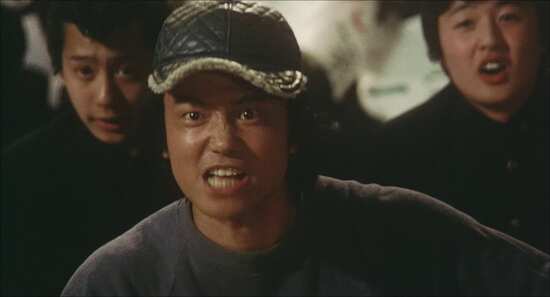
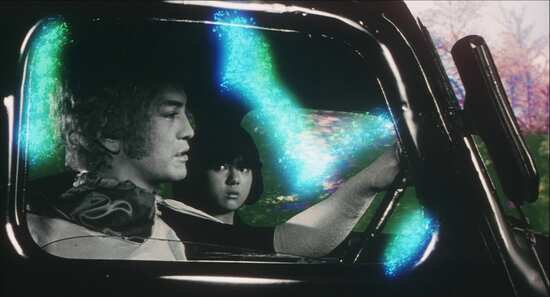
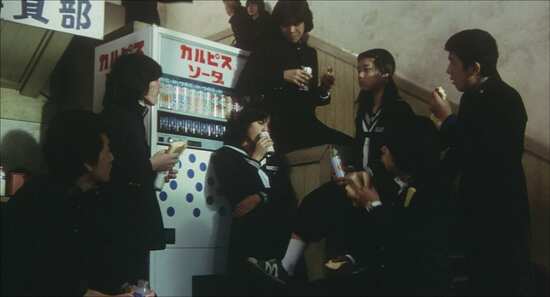
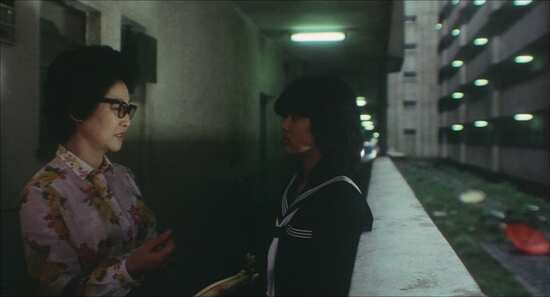
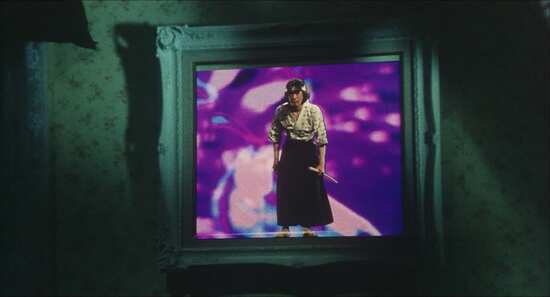
Your Opinions and Comments
Be the first to post a comment!